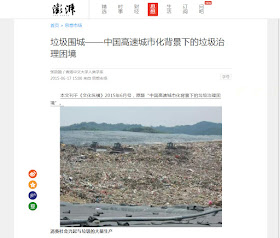黃瑜教授的文章"大資本農場不能打敗家庭農場嗎? ——華南地區對蝦養殖業的資本化過程"被刊登於《開放時代》2015年第5期。文章節錄如下:
*********************************************************************
黃瑜
【內容提要】中國農業涉及的雇傭勞動比重之低,使得很多學者認為資本化並不必然帶來農民的無產化。本文通過揭示對蝦養殖業中農業資本從“形式隸屬”到“實際隸屬”的轉變來反駁上述假設。在早期階段,由於自然的和社會的雙重障礙,資本只是通過壟斷產業鏈的上下游來榨取農民的價值。然而在近幾年,蝦農在經歷了幾場嚴重的蝦病侵襲之後,不得不放棄對蝦養殖,農業資本借機滲透進生產環節,從而最終完成了資本的“實際隸屬”。通過追蹤廣東雷州一個新興的對蝦養殖基地,本文探討農業資本如何完成土地流轉、技術控制和勞動監督以獲得反季銷售的高價,進而逐步淘汰家庭農場。這個分析有助於我們理解階級形成的動態過程以及農民無產化的軌跡。
Abstract: The low ratio of hired labor in
China’s agriculture has convinced quite a number of scholars that
capitalization does not necessarily lead to proletariatization of the farmers.
The author rejects this view by revealing the transformation of agricultural
capitals from “nominal ownership” to “real ownership” in prawn aquaculture. In
the early stage, due to both natural and social
obstacles, capitals can only extract the
farmers’ values through monopolizing the production chain upstream and
downstream. However, in recent years, after a few bouts of catastrophic prawn endemic, prawn farmers have to give up prawn business.
Agricultural capitals cash in on this situation and achieve “real ownership.”
By tracing the development of a rising prawn aquaculture base in Leizhou, the author explores how agricultural capitals accomplish
land transfer, technological control and labor
supervision, and successfully mark up sales price
in the low season. In this way, agricultural capitals are gradually
driving household farms out of business. The analysis will give some insight
into the dynamic process of class formation and the way in which farmers are
being turned into proletariats.
 |
| 《開放時代》網頁截圖 |
***********************************************************************
英文版本:Wiley Online Library






